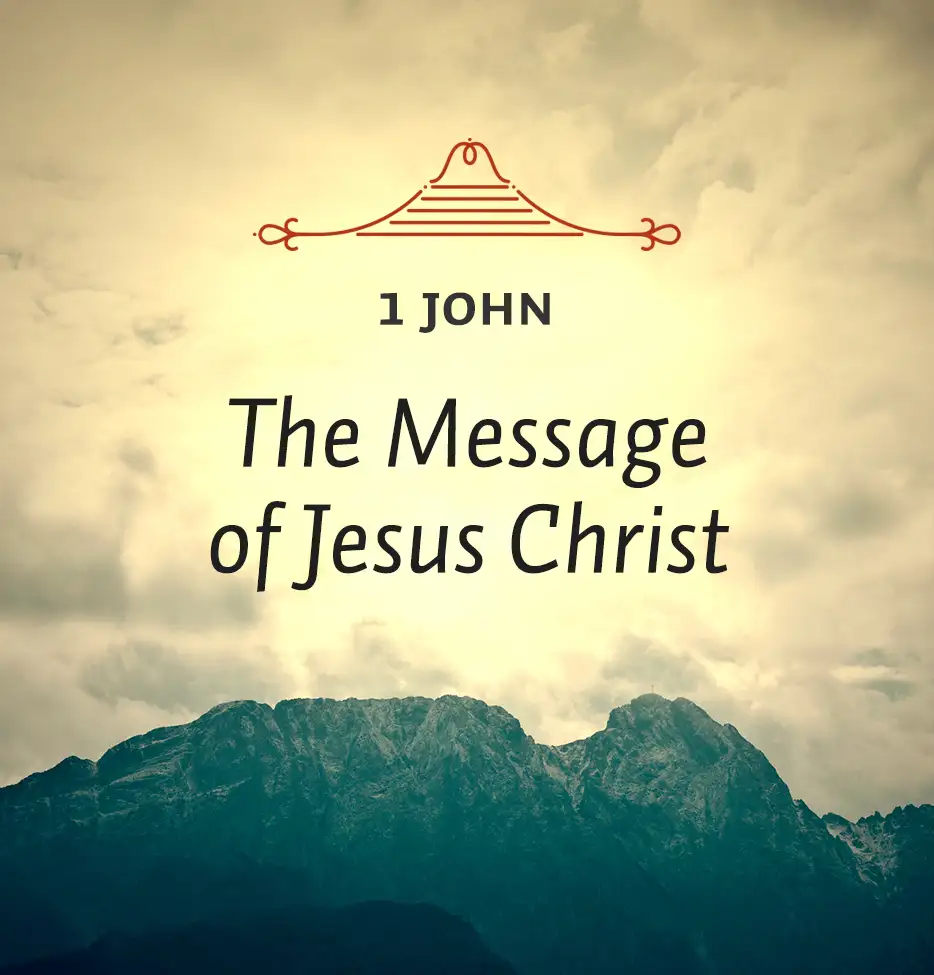John’s definition of God as light is followed by a denial of three false claims in which the reader is probably right in hearing an echo of the erroneous teachings of John’s Gnostic opponents. These men claimed to have entered into a higher fellowship with God than was known by most other Christians. They professed great things, but there was a flaw in their profession. They claimed to know God, but even as they made their claims they showed by their actions that they failed to take sin, which is opposed to the nature of God, seriously. Their religion consisted from the ethical standpoint of what Dietrich Bonhoeffer called “cheap grace.” They claimed fellowship with God, but the fellowship was not costly. They separated religion and ethics. Consequently, they claimed the higher privileges while living precisely as they pleased. In answering their views John denies three of their claims, while on each occasion also pointing to the divine remedy for sin for all who will avail themselves of it.
The first false claim that John denies is a common one, namely, that a person can have fellowship with God at the same time that his life is characterized by unrighteousness. John expresses it as the claim to have “fellowship with him” while we “walk in darkness.” Here, to “walk in darkness” means to sin habitually, the contrast being, not a sinless life (for John teaches that all sin, v. 8), but a progressive growth in godliness. The present tense indicates a continual practice of that which is opposed to God. Naturally the Gnostic teaching is in view, as John denies this erroneous assertion. But we must not miss the fact that his rebuke applies to anyone who claims to know God while at the same time treating either sin or the need for establishing and maintaining a moral life lightly. As F. F. Bruce says,
It may well be that the false teachers against whom John puts his readers on their guard were wide open to criticism in this respect, but it is equally necessary for those who adhere to the apostolic teaching and fellowship to be reminded that orthodoxy of doctrine is no substitute for righteousness of life. “Truth in the inward parts” (Ps. 51:6) is what God desires in his people, and where that is present, it will manifest itself in all the ways of life.1
The contrast to a claim to fellowship with God while actually walking in darkness is an actual walking in the light which is of necessity accompanied by the reality of Christian fellowship and continual and repeated cleansing from present sin. The fact that John speaks of cleansing from sin, using the present tense of the verb, indicates that he does not understand “walking in the light” to mean perfection. Rather, he means a genuine and continuous pursuit of holiness out of which increased fellowship with other Christians and confession of sin will come. It is that that must characterize all who know God.
The two results of walking in the light deserve special notice. First, having said that one who claims fellowship with God while actually walking in darkness lies, we might, in verse 7, expect John to reply that the one who walks in the light has fellowship with God. This would be true, of course. But John, in a somewhat condensed form of writing, skips over this to show that it also means that he will have fellowship with other believers. Indeed, it is in fellowship with one another on the horizontal dimension that our fellowship with God on the vertical dimension is demonstrated. Did the Gnostics claim fellowship with God? Then how did they see their way clear to separate from other believers, as they have done? Why did they not maintain the fellowship? The same critique applies to those who in the name of a better or purer fellowship with God break Christian fellowship today.
1F. F. Bruce, The Epistles of John (Old Tappan, NJ: Revell, 1970), 42.






